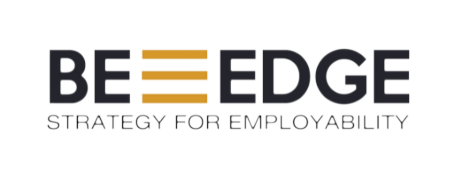
Investing in Your Personal, Social, and Professional Capital
by Jackson Jones
October 24, 2024
Newcomers to any situation can have an extremely difficult and daunting task adjusting to their surroundings. Whether this be a new country, school, or job we all struggle with the adjustment period. With this said there are many strategies one can take to ease this process.
By taking the time to invest in three main forms of capital, newcomers can unlock the keys to a prosperous future. The three biggest forms of this to master are your personal, social, and professional space. For me the biggest investment I have made was coming to Northeastern university and doing a 4-month trip abroad. During my time in Greece, I was able to get a grasp of different cultures and how life can be elsewhere. Although it was an amazing period in my life it was extremely difficult to leave my home country and adjust to a new way of living. This time period was a major investment in my social and personal space. The biggest investment I have made for my career has been attending Northeastern University. Here are some strategies that newcomers can use to invest in these three core areas.
Personal Capital:
- Invest in your education: The most important form of investing in yourself is through education and personal development. According to hospitalityinsights.com, “Evidence shows that each additional year of education boosts a person’s income by 10% and increases a country’s GDP by 18%”. There have also been studies linking education to health and empowerment. If you don’t have access to the funds for universities, you can learn virtually everything online. Reading books and articles is also very useful to stay up to date on current trends or issues. The image below illustrates the difference in education levels to hiring rates. Those with a bachelor’s degree or higher tend to have a greater chance of employment.

- Taking care of your physical and mental health: Personal capital also includes taking care of your mind and body. This means having a proper diet, getting regular exercise, and getting enough sleep. A study seen in the B.E journal of economic analysis and policy shows the direct correlation of health and academic success in college. These findings can also be applied to the workspace as well. This image from Penn State illustrates these findings.

Social Capital:
- Getting involved with your community: Whether this be in your hometown, work, or school, getting more involved with your community is a crucial investment. Organizing clubs or participating in events is a great example of this. By doing this you can make a positive impact while also building meaningful relationships.
- Foster strong relationships: having personal and meaningful conversations is crucial to building your social capital. This includes developing friendships with colleagues and industry professionals, as well as building strong bonds with family and friends. Managers also find it necessary to facilitate personal conversations for the success of a business, according to a Harvard business review. Networks will build upon themselves and eventually come naturally. It is your job to lay the groundwork for them.
- Develop your communication skills: Being able to actively listen then express your ideas clearly and effectively is another overlooked skill to building your social presence. Some of the small things you can fix immediately according to Harvard professional development are, being clear and concise, watching your tone, having good body language and posture, and building emotional intelligence.
Professional Capital:
- Building your arsenal of skills: Like personal development, education is crucial in the professional landscape as well. Being able to differentiate yourself from the competition in unique ways allows you to stand out as an employee. This will lead to better job offers and opportunities. Gaining a mentor can also be an extremely helpful way of learning. This past summer I asked one of my close family friends if I could receive counseling and just learn how he operates. I didn’t ask for any payment as I was just there to learn. Often other professionals would be open to the idea of being a mentor as well. All you have to do is ask.
- Seeking opportunities: Seeking things out to help grow your career is also important to developing your professional self. This can be seen in things such as internships, volunteer work, leadership roles, and challenges. This semester my biggest challenge was in my international business class. Teams of 6-7 were tasked with analyzing a company of our choice and conducting a case analysis determining whether the business was ready to globalize or not. Although this project was difficult, the investment paid off as I am now comfortable with client relations, writing case analyses, and taking on leadership roles in a larger team.
Overall investing in these three areas are important steps for newcomers as they establish themselves in new environments. By having strong personal foundations, creating and building connections, and constantly seeking to advance your career, you can set your life up for success.
Sources


